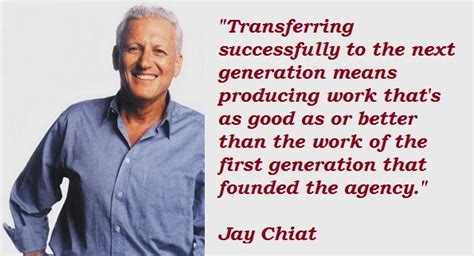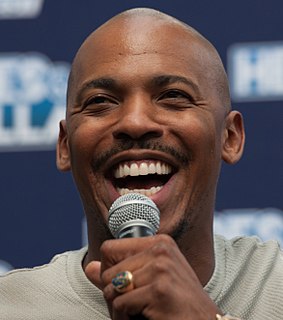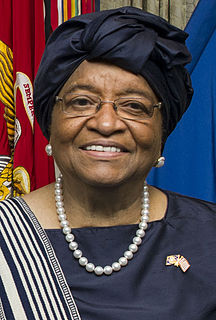A Quote by Jay Chiat
In the '20s they were telling us we'd all have our own private plane and take vacations to the moon.
Related Quotes
If you take all the food aid, America is by far the most generous country. If you take the direct aid, we're very generous. But when you add on our private contributions - see, our tax system encourages private citizens to donate to organisations that, for example, help the folks in Africa. And when you take the combined effort of US taxpayers' money plus US citizens' donations, we're very generous. And we'll do more.
It's funny. When we were alive we spent much of our time staring up at the cosmos and wondering what was out there. We were obsessed with the moon and whether we could one day visit it. The day we finally walked on it was celebrated worldwide as perhaps man's greatest achievement. But it was while we were there, gathering rocks from the moon's desolate landscape, that we looked up and caught a glimpse of just how incredible our own planet was. Its singular astonishing beauty. We called her Mother Earth. Because she gave birth to us, and then we sucked her dry.
Sometimes you have to wonder if there isn't an ejector seat built into having a popular-music career. We were lucky when we started. We were already old when we started - you could have described our first album as "aging Brooklyn guys." We were in our late 20s. We weren't octogenarians, but a lot of bands were already younger than us. Fortunately, we've held on to our manly good looks.
Christ choosing solitude for private prayer, doth not only hint to us the danger of distraction and deviation of thoughts in prayer, but how necessary it is for us to choose the most convenient places we can for private prayer. Our own fickleness and Satan's restlessness call upon us to get into such places where we may freely pour out our soul into the bosom of God [Mark 1.35].
Liberia has to take primary responsibility for its own reform agenda. But our resources are limited. We have to attract the private sector to get jobs to our people that will enable us to raise the government revenue, but to do that we have to build infrastructure. It's a very complex problem of development we are facing here.
The pictures that were coming from Vietnam were showing us what was really happening on the ground level. It was in contradiction to what our political and military leaders were telling us. They were straight forward documentary images. A powerful indictment of the war, of how cruel and unjust it was. When I finally decided what to do with my life, it was to follow in that tradition.


































